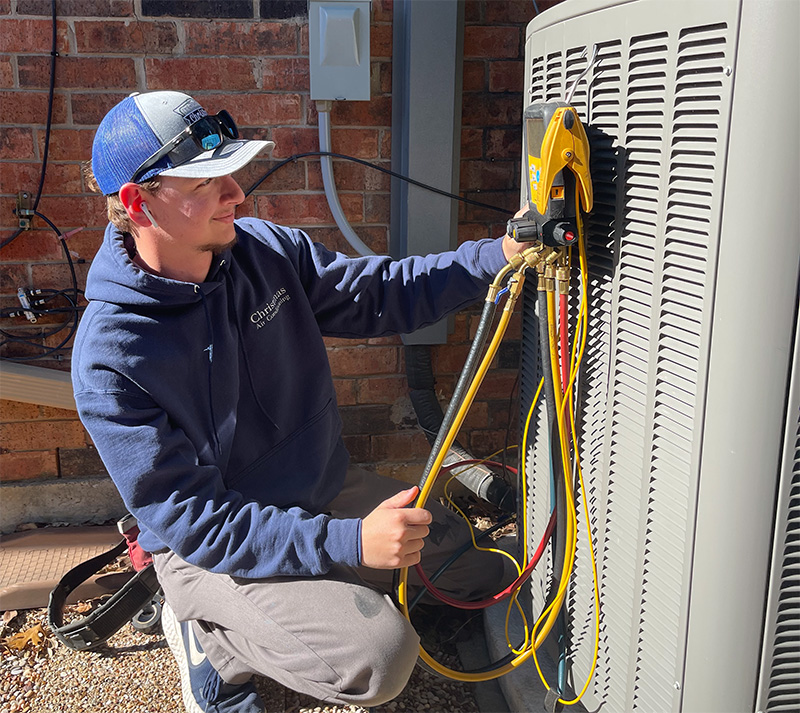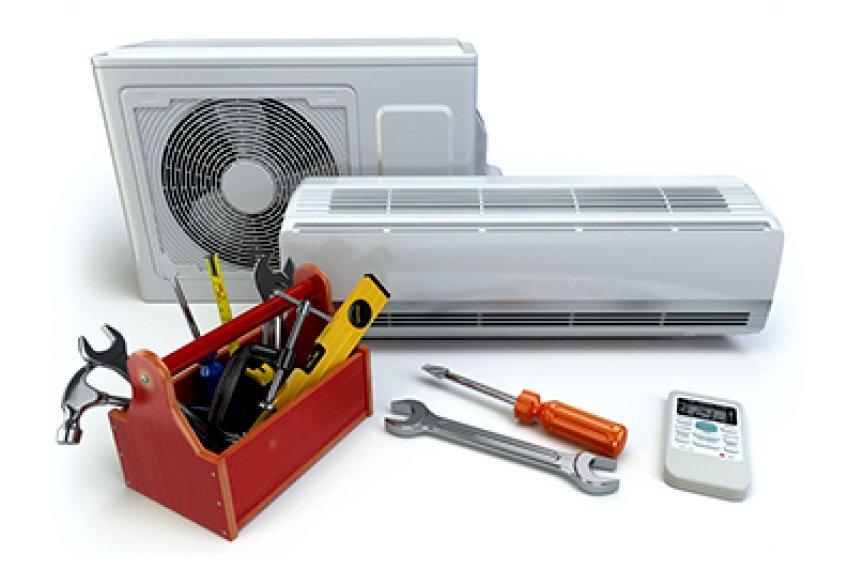Ac Repair Near Me - An Overview
Not known Facts About Air Conditioner Repair Near Me
AC Repair Near Me: Specialist Cooling System Restoration Ensures Your Home Remains Comfortable Throughout The Year
Kinds Of A/c Systems
When taking on air conditioning repair work, understanding the type of cooling system you're handling can save time, cash, and aggravation. Ever wondered why some systems cool a room much faster than others? Or why particular systems appear to break down more regularly? Let's peel back the layers.
Central Air
Some Known Details About Fix Air Conditioner
Picture a cool breeze flowing through a whole house, whispering convenience into every corner. Central air conditioning systems do precisely that. They utilize a network of ducts to disperse cooled air, depending on a compressor and condenser outside, coupled with an evaporator coil inside. When this complex monster fails, determining the concern can be like discovering a needle in a haystack.
Split Systems

Split systems are a popular option for lots of homes-- part indoor system, part outdoor compressor. They offer flexibility and efficiency, however their double nature indicates repair work can include either element. Have you ever heard a weird noise outside your home only to find the indoor unit isn't cooling? That's a traditional sign of a split system glitch.
Some Known Questions About Ac Fixing.
Window Units
These compact warriors battle summertime heat by fitting snugly into a window frame. They integrate all components into a single box. Their simplicity often means less repair headaches, but ignoring filters or permitting particles accumulation can cause decreased performance or breakdowns.
Ductless Mini-Splits
The 9-Minute Rule for Ac Repair
Ductless systems bypass ductwork entirely, making them ideal for homes without existing ventilation. They're peaceful, effective, and remarkably resilient. When repair work are required, service technicians need to be adept at dealing with refrigerant lines and electrical connections-- no small task.
Quick Referral Table
| Type | Secret Features | Typical Repair Work Issues |
|---|---|---|
| Central air conditioning | Ductwork, whole-house cooling | Duct leaks, compressor failure |
| Split System | Indoor & & outside systems | Refrigerant leakages, fan motor concerns |
| Window System | All-in-one, easy installation | Filthy filters, electrical faults |
| Ductless Mini-Split | No ducts, zoned cooling | Line leakages, sensing unit breakdowns |
Little Known Facts About Air Conditioning Repair.
Deciphering the A Lot Of Frequent Air Conditioner Problems
Have you ever questioned why your air conditioner suddenly stops cooling during a sweltering afternoon? One typical perpetrator is a dirty or stopped up air filter. This sly villain limits air flow, requiring your system to work overtime, which not just lowers efficiency but can also result in early breakdowns. Think of attempting to breathe through a headscarf taken in dust-- it's tiring!
Another frequent hiccup is refrigerant leaks. These undetectable leakages don't just decrease cooling power but can also damage the compressor, the heart of your a/c system. How frequently do you check for uncommon hissing noises or ice development on the coils? Catching these signs early can conserve you from pricey repair work down the line.
Beyond the Fundamentals: Lesser-Known Issues
Getting The Air Conditioning Repair Near Me To Work
Often, the thermostat itself is the troublemaker. Miscalibrated or malfunctioning thermostats send blended signals, causing the a/c to cycle erratically. Ever knowledgeable your a/c turning on and off in rapid succession? That's called short cycling, a tricky performance drainer that can break parts quicker than you 'd anticipate.
Electrical issues, such as used electrical wiring or a malfunctioning capacitor, might hide below the surface area. AC Repair Near Me. These often manifest as air conditioning systems stopping working to begin or all of a sudden shutting down. An expert eye knows to test these parts with precision tools, something a casual glimpse will not expose
Specialist Tips for Diagnosing Common A/c Problems
The Best Strategy To Use For Repair Air Conditioner Near Me
- Inspect and replace air filters frequently-- every 1 to 3 months depending on use and environment.
- Listen for unusual noises like rattling or buzzing that might indicate loose parts or electrical faults.
- Check the outside system for particles or obstructions that restrain air flow and cause overheating.
- Try to find frost accumulation on evaporator coils, a hint towards refrigerant problems or airflow constraints.
- Check the thermostat settings and recalibrate if the temperature level readings feel off.
Quick Reference Table: Manifestation & & Probable Triggers

| Symptom | Probable Cause | Professional Suggestion |
|---|---|---|
| Warm air blowing | Low refrigerant or dirty coils | Tidy coils and examine for leaks right away |
| Brief cycling | Thermostat concerns or large system | Change thermostat settings and seek advice from sizing guidelines |
| System will not start | Electrical faults or capacitor failure | Test circuitry and replace capacitors as required |
| Water leakage | Clogged drain line or frozen evaporator | Clear drain lines and check for coil icing |
DO IT YOURSELF AC Maintenance Tips
Not known Incorrect Statements About Air Conditioning Repair
Ever seen your ac system sputtering like an old engine on a hot summertime day? Overlooking subtle indications often indicates more than just a sweaty afternoon-- it's a prelude to unanticipated air conditioning repair work expenses. But what if you could catch those whispers before they turn into wails? Routine do it yourself maintenance can be your first line of defense.
Easy Actions to Keep Your AC Running Efficiently
Rumored Buzz on Ac Repair
- Clean or Replace Filters: A blocked filter resembles trying to breathe through a headscarf. Every 1-3 months, examine and swap out your filters. It enhances airflow and effectiveness, preventing compressor pressure.
- Check the Condenser Coils: Dust and debris serve as unnoticeable blankets smothering your unit's cooling power. Gently brush or vacuum the coils, but prevent harsh chemicals that may erode the metal.
- Examine the Drain Line: When was the last time you glanced at your drain pan? A clogged drain can trigger water leaks and foster mold growth. Flushing it with a vinegar service month-to-month keeps the flow clear.
- Seal and Insulate: Are your ductworks whispering leaks? Sealing spaces with mastic or foil tape improves effectiveness and cuts down on uneven cooling.
Pro Tips Beyond the Essentials
- Step your unit's voltage to capture subtle electrical wear before it sparks big issues.
- Listen for uncommon hums or rattles-- these acoustic breadcrumbs typically signal loose parts or failing motors.
- Keep outside systems shaded however guarantee at least two feet of clearance around them for ideal airflow.
Ask yourself: Are you hearing your air conditioner's peaceful SOS or just awaiting it to shriek? Requiring time for DIY air conditioning maintenance changes reactive repair into proactive care, conserving sweat, stress, and yes, money.
The smart Trick of Air Conditioning Repair That Nobody is Discussing
Why Competence in A/c Repair Matters
Picture this: your air conditioning unit sputters and groans during a scorching afternoon, leaving you sweltering indoors. Would you rely on an amateur fumbling with fragile components, or would you seek the reassurance of a expert a/c specialist!.?.!? The complexities of contemporary air conditioning systems require precision and experience. A small miscalculation can intensify a minor malfunction into a costly catastrophe.
The Ultimate Guide To Ac Repair Near Me
Hidden Intricacies Behind the Cool Breeze
Lots of undervalue the layers concealed beneath the sleek exterior of an a/c unit - AC Repair. From refrigerant leakages that silently drain efficiency to malfunctioning thermostats that misread temperatures, these concerns require more than a fundamental toolkit. Professionals have a keen eye for detecting problems that balance read more house owners overlook
Necessary Tips for Choosing the Right Specialist
Some Known Incorrect Statements About Ac Fixing
- Certification and Training: Validate credentials; a service technician trained in the most current heating and cooling technologies is vital.
- Experience with Specific Systems: Not all air conditioner units are created equivalent; discover somebody acquainted with your design's quirks.
- Diagnostic Method: Skilled professionals use advanced tools-- like electronic leak detectors and thermal imaging-- to determine covert faults.
What to Get out of a Pro's Diagnostic Process
| Action | Purpose | Specialist Insight |
|---|---|---|
| Visual Examination | Identify apparent wear or damage | Search for corrosion or unusual noises-- a telltale indication frequently neglected |
| Pressure Testing | Find refrigerant leakages | Subtle pressure drops can mean micro leaks invisible to the naked eye |
| Electrical Testing | Ensure circuit integrity | Loose connections can mimic serious mechanical failures |
5 Easy Facts About Repair Air Conditioner Near Me Described
Why Do It Yourself Frequently Falls Short
Tempting as it is to tinker with your AC unit, DIY fixes often miss out on the root cause. For instance, complementing refrigerant may briefly cool your space but neglects leaks that get worse with time. Professional technicians do not simply spot symptoms; they hound the underlying mechanical and electrical faults that sap performance.
The Definitive Guide to Repair Air Conditioner Near Me
Questions to Ask Before Working with
- What diagnostic tools do you use to recognize problems?
- Can you describe the repair work process and anticipated results?
- Are you knowledgeable about the refrigerants suitable with my unit?
- Do you follow safety protocols for handling electrical parts?